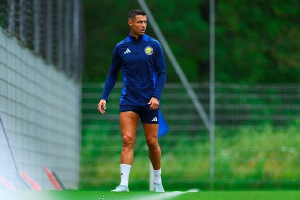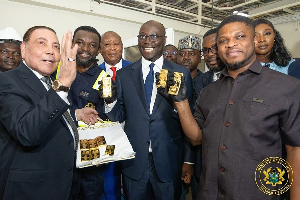By Stephen Odoi-Larbi
stevelarbi404@gmail.com
Historical Perspective
Traditional chiefs figured prominently in the system of indirect rule adopted by the British to administer their colonies in Africa.
The structure of local government in Ghana has its roots in traditional system of government. Chiefs and their elders were responsible for the immediate needs of individual localities, including traditional law and order, and the general welfare of the people.
It is in the light of the above that the role of the traditional rulers should be linked with finding a lasting solution to the cholera plague that is currently afflicting this nation.
The filth in Accra has been cleared and there is a new breeze of air blowing all over. But can we sustain this? That is the multi-million dollar question many are asking.
The cholera outbreak in the country, we are told by the Ghana Health Service, has reached an alarming proportion where a hundred lives have been lost and the disease has affected thousands of people.
Local Initiative
The immediate cause to this disease has been identified from unhygienic practices. Each year, the various local authority bodies come up with an initiative to fight filth, in an attempt to make their communities cleaner.
Millions of cedis and other resources are sunk into this initiative year-in year-out. To a larger extent, the purpose of such initiative has always been achieved. It is only when there is a relaxation in the pursuit of such ambitious project that the communities, especially those in the cities, suffer with all kinds of diseases.
This goes to prove that communities in the cities have been pampered so much, to the extent that when there is a slowdown in the activities of the local authorities; outbreak of diseases becomes the order of the day.
Rural-Urban dichotomy
The opposite is the situation in the rural communities. With this trend, the question of sustainability arises.
Whereas in the rural communities it is communal labour that is the driving force behind their development, especially, with regard to a cleaner environment and related issues, those in the cities always rely on the local authority to clean up the mess they generate.
And so, in cities like Accra and Kumasi, you will from time to time hear on the airwaves, read in the print or watch on TV their metropolitan chief executives leading the fight against filth by desilting gutters and collecting heaped garbage.
Custodians Of The Land
With this, another question comes to mind – who are the driving forces behind communal labour? The simple answer is the chiefs.
The chiefs are the custodians of the land and that means they have a bigger responsibility not only to ensure that their communities are developed, but also to ensure that they are protected from diseases.
To achieve this, most communities have set aside a special day where none of their citizens go to farm or work, but rather come together to embark on a cleanup exercise to clear filth. In most cases, the exercise is led by the custodian of the land.
Communal Labour
Any resident who fails to be part of this exercise is punished either by paying a fine or is assigned to do some work for the community.
The brain behind this laudable initiative is to promote the spirit of volunteerism and patriotism. The story should not have been different in the cities as all the local authorities have bye-laws to that seek to achieve same purpose as those in the rural areas.
The rural areas, mind you, are also under local authorities. But because the chiefs have instituted their own initiatives to compliment the bye-laws of the assembly, little will you see them (local authority) at the forefront of any clean-up exercise.
In most of the byelaws of the local authority, there is a clause on communal labour which also seeks to promote volunteerism and patriotism but the enforcement of law has always been a problem.
Chiefs As Local ‘Presidents’
The local authorities are empowered by the law to from time to time serve notice of date and time on which the communal labour will be organized and the nature of the communal labour to be undertaken.
The organizing authority may exempt any person from taking part in the communal labour organized by it if it is satisfied that the person is sick; the person is required to appear before a Court or Tribunal or to help the Police in any investigation; the person is attending the funeral of his/her relative or of such person as the Assembly or Organising Authority may approve.
In pursuit of such clause, the local authorities have often times neglected the chiefs whom many listen to and obey their commands than most of the people heading the organizing authority.
That is why community participation in most cleanup exercises has always been a source of worry. Sustaining cleanup exercises in communities in the cities can never be achieved without the involvement of the chiefs.
The chiefs, to a larger extent, have large followers in the community than any other person at the local authority level. In some instances, they are revered and they influence the day-to-day activities of the people.
Empowering Traditional Authorities
They command respect and so their words are taken more seriously than the MMDAs of the local authority. They have the right to punish and would not hesitate to punish those who harm the environment.
Their presence at the event grounds clearly sends a signal that anyone who escapes the exercise shall go unpunished because that person is not above the chief.
They may not have the complicated tools to embark on a cleanup exercise but with the single beat of the gong-gong, his subjects gather and take orders to pursue the given task.
Their organizational skills are hard to attract criticisms and that is why in any event you see them at the forefront, that event becomes a huge success.
Supporting the chiefs to lead clean-up and other developmental exercises in the communities will inure to the benefit of all, since they help with the little resources available to solve bigger tasks.
Opinions of Monday, 8 September 2014
Columnist: Odoi-Larbi, Stephen














